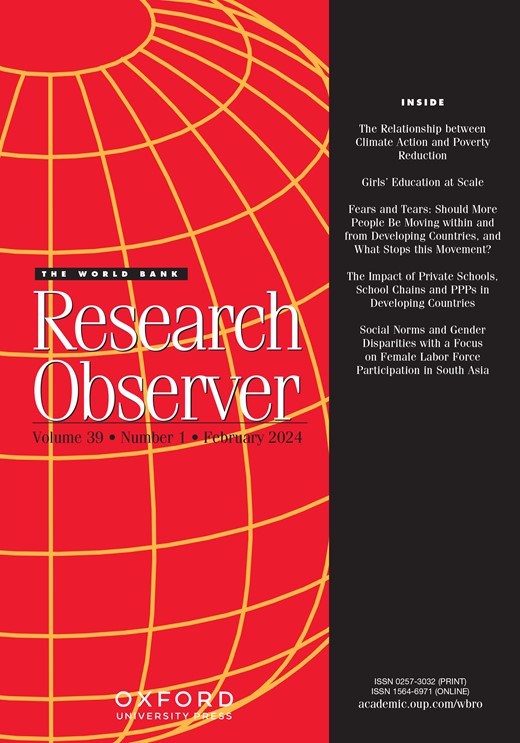Long-Term Impacts of Conditional Cash Transfers: Review of the Evidence
IF 3.3
1区 经济学
Q1 DEVELOPMENT STUDIES
引用次数: 103
Abstract
Conditional Cash Transfer (CCT) programs, started in the late 1990s in Latin America, have become the antipoverty program of choice in many developing countries in the region and beyond. This paper reviews the literature on their long-term impacts on human capital and related outcomes observed after children have reached a later stage of their life cycle, focusing on two life-cycle transitions. The first includes children exposed to CCTs in utero or during early childhood who have reached school ages. The second includes children exposed to CCTs during school ages who have reached young adulthood. Most studies find positive long-term effects on schooling, but fewer find positive impacts on cognitive skills, learning, or socio-emotional skills. Impacts on employment and earnings are mixed, possibly because former beneficiaries were often still too young. A number of studies find estimates that are not statistically different from zero, but for which it is often not possible to be confident that this is due to an actual lack of impact rather than to the methodological challenges facing all long-term evaluations. Developing further opportunities for analyses with rigorous identification strategies for the measurement of long-term impacts should be high on the research agenda. As original beneficiaries age, this should also be increasingly possible, and indeed important before concluding whether or not CCTs lead to sustainable poverty reduction.有条件现金转移的长期影响:证据审查
20世纪90年代末在拉丁美洲启动的有条件现金转移(CCT)计划已成为该地区及其他许多发展中国家的反贫困计划。本文回顾了关于儿童进入生命周期后期后对人力资本的长期影响和相关结果的文献,重点关注两个生命周期的转变。第一种包括在子宫内或儿童早期接触CCTs的儿童,这些儿童已达到上学年龄。第二类包括在学龄期间接触CCTs的儿童,他们已经成年。大多数研究发现对学校教育有积极的长期影响,但很少有研究发现对认知技能、学习或社会情感技能有积极影响。对就业和收入的影响是喜忧参半的,可能是因为以前的受益人往往还太年轻。许多研究发现,估计数在统计上与零没有差异,但通常不可能确信这是由于实际缺乏影响,而不是由于所有长期评估面临的方法挑战。开发进一步的机会进行分析,并制定严格的识别策略来衡量长期影响,这应该是研究议程上的首要任务。随着原始受益人年龄的增长,这也应该越来越有可能,而且在得出CCTs是否能导致可持续减贫的结论之前,这一点确实很重要。
本文章由计算机程序翻译,如有差异,请以英文原文为准。
求助全文
约1分钟内获得全文
求助全文
来源期刊

World Bank Research Observer
Multiple-
CiteScore
12.60
自引率
1.20%
发文量
8
期刊介绍:
The World Bank Journals, including the Research Observer, boast the largest circulation among economics titles. The Research Observer is distributed freely to over 9,100 subscribers in non-OECD countries. Geared towards informing nonspecialist readers about research within and outside the Bank, it covers areas of economics relevant for development policy. Intended for policymakers, project officers, journalists, and educators, its surveys and overviews require only minimal background in economic analysis. Articles are not sent to referees but are assessed and approved by the Editorial Board, including distinguished economists from outside the Bank. The Observer has around 1,500 subscribers in OECD countries and nearly 10,000 subscribers in developing countries.
 求助内容:
求助内容: 应助结果提醒方式:
应助结果提醒方式:


